
Do you have what you need to make your garden grow?


Garden Center
Store Hours
Mon-Sat:
6:00am - 10:00pm
Sun:
7:00am - 8:00pm
Curbside:
09:00am - 6:00pm
Location
Popular at Your Garden Center
Trending Garden Supplies in May
Trending Live Plants
Garden Project Calculators
;Resize=(703,395.44))
Grass Seed Calculator
When you're ready to seed your lawn, our calculator helps you estimate the amount of grass seed you'll need to get the job done.
;Resize=(703,395.44))
Mulch Calculator
Enter your preferred material, the square footage and mulch depth of the coverage space for accurate results.
;Resize=(703,395.44))
Fencing Calculator
We'll calculate the amount of fencing you should purchase based on your property needs.
Shop Outdoor and Garden Brands
Frequently Asked Questions About Gardening
What planting zone am I in?
Check the USDA plant hardiness zone map, as planting zones have shifted over the years. Planting zones with higher numbers can plant earlier in the year. Increase your odds of successful gardening by choosing plants that are meant for your zone.
What's direct sow in gardening?
If the soil isn't frozen or cold, consider planting your fruit, flower, or vegetable seeds directly into your garden. This is called the "direct sow" method. Plant after the threat of frost is gone for the season, as seedlings and sprouts can't weather those conditions. You can also start your seeds indoors if you'd like. Consult your seed envelope for how and when to sow seeds.
How do I plant seeds?
The best source of info is the seed envelope your garden-to-be came in. It's key to successfully growing spring flowers, fruits, and vegetables — indoors or outdoors. Requirements vary with each seed type. Some seeds should only be sown indoors, and your seed package will tell you that, too. You'll be a pro at planting seeds in no time.
Do I have to harden off my seedlings before planting them outside?
Yes, for best results, if you raised plants indoors from seeds in your own plant nursery, harden them before you transplant them. Hardening allows your seedlings to adjust to the great outdoors, making them more resilient against cold snaps. It slows their growth until they're strong and ready to take off during a spring warm front.
How do I strengthen my seedlings before planting them outdoors?
Get your sprouts used to storms and breezy spring days with a fan and keep fungus from growing in damp conditions. Set up an oscillating floor fan on low to mimic the wind. Just the gentlest breeze for several hours a day will do the trick — no need to prep them for a hurricane. The stems and leaves will get used to blowing in the breeze and not snap when a gust comes through. If you don't set up a fan, your seedlings may be more sensitive to strong winds. Try to plant between storms.
What are seed tapes?
If you want more guidance in planting or are dealing with extremely tiny seeds, consider seed tapes. They're biodegradable pieces of paper with tiny seeds affixed at regular intervals. Just bury the tape and water as directed. If all goes well, you'll have perfectly spaced sprouts pop up soon.
Garden Project Ideas
The Home Depot Garden Center at Wentzville
Celebrate Springtime Gardening
On beautiful spring days, tidy the yard before everything blooms in earnest. Remember to measure your garden so you can find fresh mulch near you as soon as it's available. Don't forget to clean the shed and sweep out the gazebo in preparation for spring, too. No matter what outdoor projects you choose to tackle and which plants you need, you'll find that The Home Depot Wentzville Garden Center is the local plant nursery to help you enjoy your spring activities to the fullest.
Plant Hardiness Zones Explained
The first thing you should know when planting vegetables, spring flowers, and other seeds is your planting zone. Every location in the U.S. and its territories is sorted by climate. Find your zone on the USDA zone map and learn when to plant seeds.
For example, you could transplant bell peppers outdoors in mid-March in Zone 10, but not until the end of May in Zone 4. You'll have good results with plants that have your zone number or less. In other words, a Zone 8 garden can support plants listed as Zones 1–8. You can plant seeds indoors roughly a month before you can plant them outside, known as direct sow. Read your seed packet for details. If you start them later than recommended, it's not ideal, but it will even out as time passes.
Gardening in Your Growing Zone
This area is primarily in Zone 6, with Zone 5 starting in Central Illinois, slightly north of Peoria and Bloomington-Normal. The outdoor growing season doesn't begin here until mid-March or even April, although you can plant some veggie seeds halfway through February. Tomatoes, peppers, cucumbers, squash, and other classic garden crops will do well in this region, and most of them can get an early start indoors before spring really moves in.
Also, check out certain herbs and cruciferous veggies if you're ready to get planting. This includes kale, broccoli, and cabbage. Greens like spinach, artichokes, and fragrant herbs, including oregano, basil, and parsley, also don't mind an early beginning. The main concern is waiting until the frost has passed for the season, so planting seeds outdoors as direct sow is later here compared to farther south.
Start Seeds Indoors
You can save money and gain the satisfaction of growing your garden from seeds by starting them indoors in your own plant nursery. We've got all the seed starter supplies you'll need. Veteran planters and new gardeners alike should disinfect seed trays with a watered-down bleach solution before reusing them each year. When your trays or pots are prepared, plant your seeds. As for the soil, test the mineral levels and pH to find if it needs amendments or additives. Soil pH differs among regions, and what your plants need depends on what you're growing. Most veggie plants like a pH of 5.5–7.5. Soil amendments can tip the balance of your soil in a way that'll help your plants.
Measure your finger to use it as a ruler. In general, you'll plant 3–5 seeds, then press them into the soil to the depth you need with your finger. Mark where you planted the seeds with a toothpick or plant tag. Otherwise, it'll be a surprise when the sprouts push out of the soil.
Sprouts
Prepare your seed sprouts for outdoor life while they're still indoors. These inch-tall micro-seedlings are fragile but resilient. Seedlings don't get all this pampering in nature when they volunteer and grow wherever, so they can handle more than you think. However, don't go overboard, as your sprouts are still babies. You can even use an oscillating floor fan on low to mimic the wind and strengthen their stems.
Harden Your Seedlings
Make sure to harden your seedlings for strong plants. On days that are warmer than 45–50 degrees, take your pots or trays of seedlings outside to slowly warm in the shade for two hours, but bring them inside at night. Cloudy days are fine, but no harsh nighttime chills or direct sunlight yet. After a week or more of this, you can leave them out overnight if the temps stay warmer than 50 degrees. Cover your plants if they're in the ground when a late-season frost sneaks back in.
Transplant Young Plants Into Their New Homes
Place your transplants in the ground, then water them well. Blanket the surrounding area with mulch, marking where the plant is with a tag so you can easily find it among the grass clippings, old leaves, or straw. If your yard is regularly visited by deer or rodents, consider putting up chicken wire or other protective measures so your plants and veggies are less likely to get eaten before they thrive.
Protect Your Garden With Mulch
Finish it all off with compost and mulch. Mulch keeps your soil from drying out and controls weeds. Compost enriches the soil so your garden can grow even better. It may help foster stronger plants that bear more flowers and fruit. Compost and mulch can be purchased in-store or created at home. The next time you're looking for "mulch near me," stop by the Garden Center to get the right amount.
Greet the Spring
Early spring is an exciting time in the world of gardening. Prepare to fertilize your lawn, plan your garden and landscaping, and browse The Home Depot nursery to find inspiration on what to plant when the weather warms. For those without lawns, consider adding an outdoor rug, artificial grass, or a pellet grill to your patio or balcony. Shop for the fertilizer, soil, and seeds you need in the aisles of your Wentzville Garden Center, online, or on our mobile app. Let's get growing together.
Nearby Stores
Find Another Store
1525 Hwy K
O'Fallon, MO 63366
9.50 mi
Mon-Sat: 6:00am - 10:00pm
Sun: 7:00am - 8:00pm
6190 Mid Rivers Mall Dr
Saint Peters, MO 63304
13.95 mi
Mon-Sat: 6:00am - 10:00pm
Sun: 7:00am - 8:00pm
3891 Mexico Rd
Saint Charles, MO 63303
16.83 mi
Mon-Sat: 6:00am - 10:00pm
Sun: 7:00am - 8:00pm
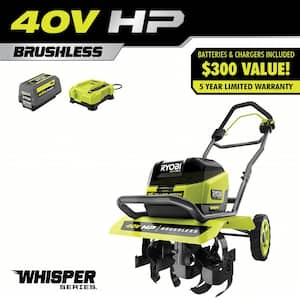
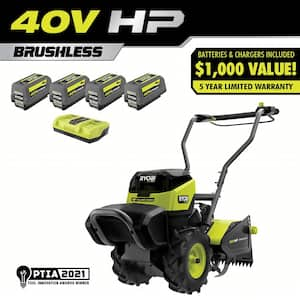
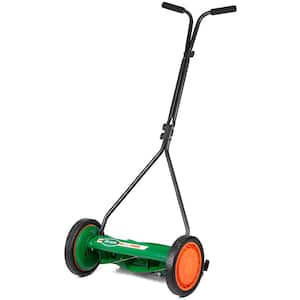
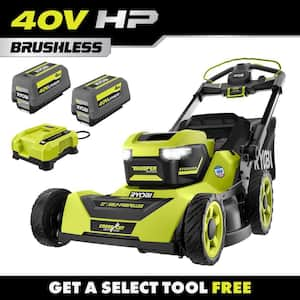
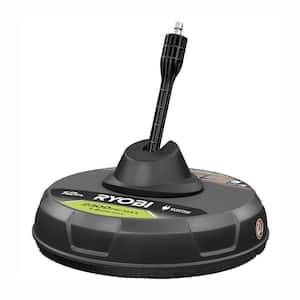
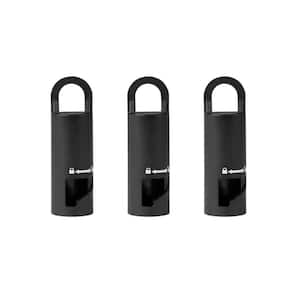
)
)
/17_514245_S_012_Product%20Image%20(square).jpg?im=Resize=(300,300))
;Resize=(300,300))
)
)
)
)
)
/2023_P2_Rain_Barrels_Product%20Image%20(square).jpg?im=Resize=(300,300))
)
;Resize=(300,300))
;Resize=(300,300))
;Resize=(300,300))
/12_SOIL_B_0420_Social%20media%20(square).jpg?im=Resize=(300,300))
;Resize=(300,300))
)
)
;Resize=(300,300))
;Resize=(300,300))
;Resize=(300,300))
;Resize=(300,300))
)
)
;Resize=(300,300))
;Resize=(300,300))
;Resize=(300,300))
;Resize=(300,300))
;Resize=(300,300))
)
/18Patio_Camden_Seagrass_5pcSeating_Planters_302468736_DTL3_L_Social%20media%20(square).jpg?im=Resize=(300,300))
;Resize=(300,300))
;Resize=(300,300))
;Resize=(300,300))
)
;Resize=(300,300))
;Resize=(300,300))
)
;Resize=(300,300))
)
.jpeg?im=Crop,rect=(363.69230769230774,1.2307692307692308,958.7692307692308,958.7692307692308);Resize=(300,300))
;Resize=(300,300))
)
;Resize=(300,300))
;Resize=(300,300))
)
;Resize=(300,300))
)
)
;Resize=(300,300))
;Resize=(300,300))
)
)
;Resize=(300,300))
)
;Resize=(300,300))
;Resize=(300,300))
)
)
;Resize=(300,300))
)
)
/Capello_Spring_Mum_10in_Social%20media%20(square).jpg?im=Resize=(300,300))
;Resize=(300,300))
)
)
;Resize=(300,300))
)
)
;Resize=(300,300))
)
)
;Resize=(300,300))
;Resize=(300,300))











































